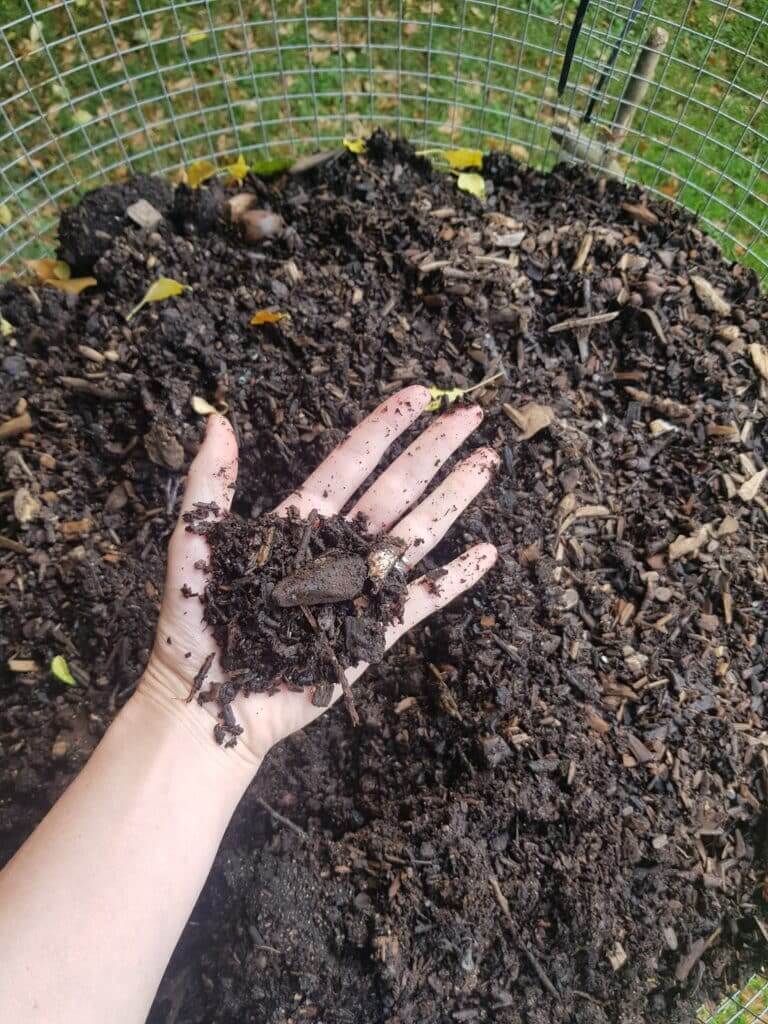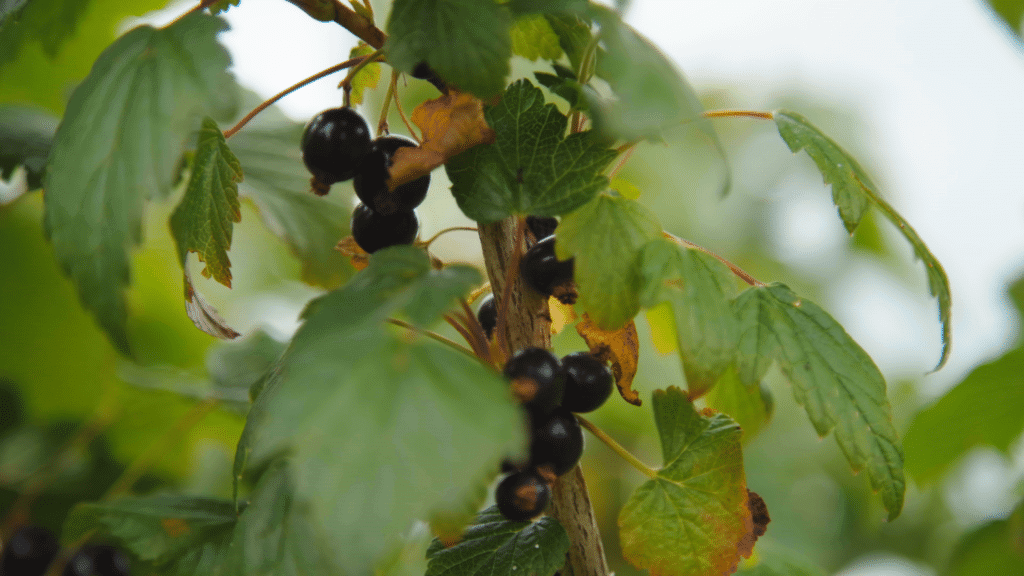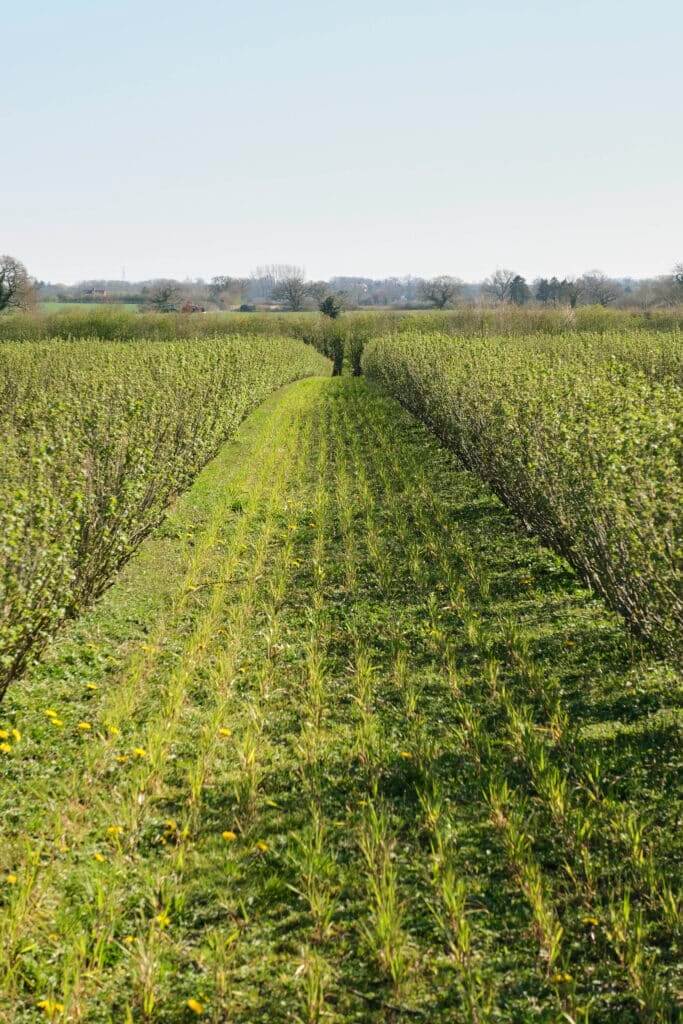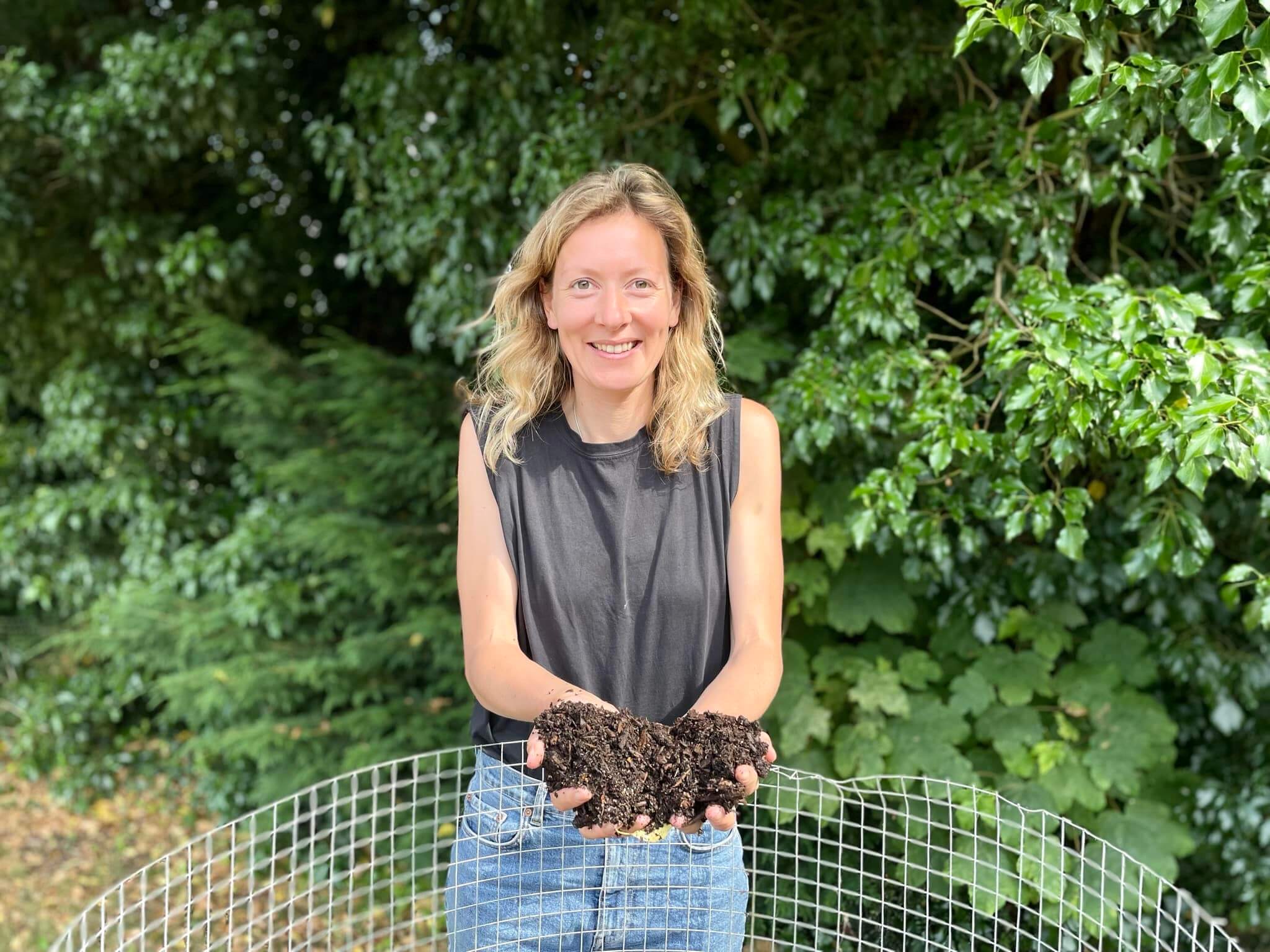Sipping on a glass of Ribena, your thoughts might well be very far away from the millions of microscopic soil fungi, microbes and bacteria that helped those blackcurrants to grow.
But that is exactly the realisation that Rosie Begg had, after completing a course in composting that transformed the way she viewed her soil. It all began when she returned to work on the family farm, Gorgate Farm, in Norfolk, which has been growing blackcurrants to be pressed and turned into Ribena for 30 years. Soon after returning, she witnessed the wettest year on record, then the driest and hottest year on record where 80 per cent of their late varieties were simply “cooked on the bush”.
“It was just a very small snapshot of these extremes and [how] we’re not very resilient to them,” she explains. “I can see that, in the next 30-40 years, I’m not going to be able to grow them in the way I am now.”
It was this that prompted Begg to study her soils more closely than ever before, attending a course called the Soil Food Web, to learn how the plants, roots and micronutrients interact in an incredibly complex system that needs to be perfectly in balance.
It’s fairly common knowledge that composting helps bring nutrition to plants, whether on farms or in gardens, but what is becoming increasingly understood by growers is that the type of composting and what it can achieve varies immensely.

“Because it’s a hedgerow, we need a fungal-dominant soil. But we have a very bacterial-dominant soil, and that is over time [because] of the use of different pesticides and artificial nitrogens,” she says.
“It’s a very different way of thinking about it – you’re not putting on compost as a fertiliser, you’re making compost to be full of microbes to inoculate the soil.
“You look at that woodland over there and no one’s put nitrogen on it to make it green. No one’s put manure on it. No one’s sprayed it with fungicide. It does it because it’s in balance. So that’s what we want to try and put back. And by creating a more fungal-dominant soil – fungi store carbon in their structures – we will also start sequestering more carbon.”
Begg is grateful for the time she was able to take away from the farm to study this science, in part because her main customer and the owner of the Ribena brand, Japanese-owned Suntory Beverage and Food GB&I, is helping its growers become more resilient for the future.
Ribena buys 90 per cent of the British blackcurrant crop and is credited with keeping the commercial industry alive in the country (there is very little market for fresh blackcurrants due to the high cost of picking them compared to how much they can sell for).

The group buys from 34 blackcurrant growers stretching from Scotland, the Midlands, Kent and Norfolk, in a geographical spread designed to maximise climate resilience. Begg is working with a soil scientist from the University of East Anglia, along with a soil lab and agronomists at Suntory, to collect and analyse enough data from which others can reliably learn.
As well as composting, she’s also been growing cover crops – such as oats and beans – in between the rows of blackcurrants, a technique that allows the soil to retain more nutrients.
“Traditionally, in between the alleys has just been grass, which is good because it’s been covered, but you then have a monoculture of blackcurrants with a monoculture of grass. We need those different root depths to be feeding the soil microbes,” she says.
What Begg’s trial is proving is that there is scope for fruit growers to look more closely at composting and other regenerative farming techniques, with potentially huge benefits for the climate resilience of their crops and carbon storage of their soils.

But aside from type of farm, there is another reason why it can be daunting to jump off into a new world of sustainable farming, as Begg has done.
She explains: “I almost feel like for me it’s easier as I have no expectations of how I should have farmed, whereas I can absolutely see how for that generation it takes a hell of a lot of courage to start from the bottom and work up.
“Farming is really hard. Lots of people have been really pushed to the brink and they’ve got families they want to look after, and they probably feel that it’s risky. So I think it’s for the people who can afford to make these changes and deal with the transition for a few years. We have responsibility to do it and then can help them.
“Because some people are just about coping, and that is an issue with the supermarket contracts which has pushed them to get that margin and are so panicked about not getting it.”
And it’s not just about the economic future of her farm, although that is certainly a pressing consideration as climate change makes it so hard to plan and grow food to withstand erratic weather changes.
“I have nieces and nephews and I’m thinking about their futures,” says Begg. “I worry about our future on this planet and I see things changing. If we could, for physical and mental health, start to look at good food and show people that it can be really delicious – I think we need more ways to connect people with that,” she says, recalling how 40 years ago, the widespread tradition of pick-your-own fruit gave the whole family a connection with what was in season.
On a practical level, the plans for the farm extend out past the blackcurrants; a market garden connected to a café, from where people can see and taste seasonal food, as well as a collaborative landscape restoration project. And what’s more, she doesn’t want to do it alone. “I don’t personally want to run all these things. I would like to build a really collaborative space as I’m realising you can’t run it all. And maybe we have a revenue share model.”
It’s certainly an inspiring vision, and one that very much begins with restoring the very foundations of the farm and the delicate balance of life within the soil itself. As Begg puts it: “I think we’re all starting to see how it could be different.”
Ribena factfile
Ribena is owned by Suntory Beverage and Food GB&I – the UK’s 3rd largest branded soft-drinks company. It was sold to the Japanese owned company by GlaxoSmithKline in 2013.
The group employs around 300 people at its factory in Coleford, Gloucestershire, 90 per cent of whom live locally.
Approximately 630,000 Ribena drinks are bottled and packaged every day at Coleford and it takes 0.2 seconds to make a single Ribena bottle.
Ribena sold in the UK is made using 100 per cent British-grown blackcurrants. This varies when it comes to Ribena in other parts of the world. Mostly it is still produced in the UK with UK blackcurrants, however for locations such as Malaysia and Singapore, these products are made with EU blackcurrants.
Ribena is made from 10 different blackcurrants, which are bred with help from researchers at the James Hutton Institute in Scotland.










0 Comments